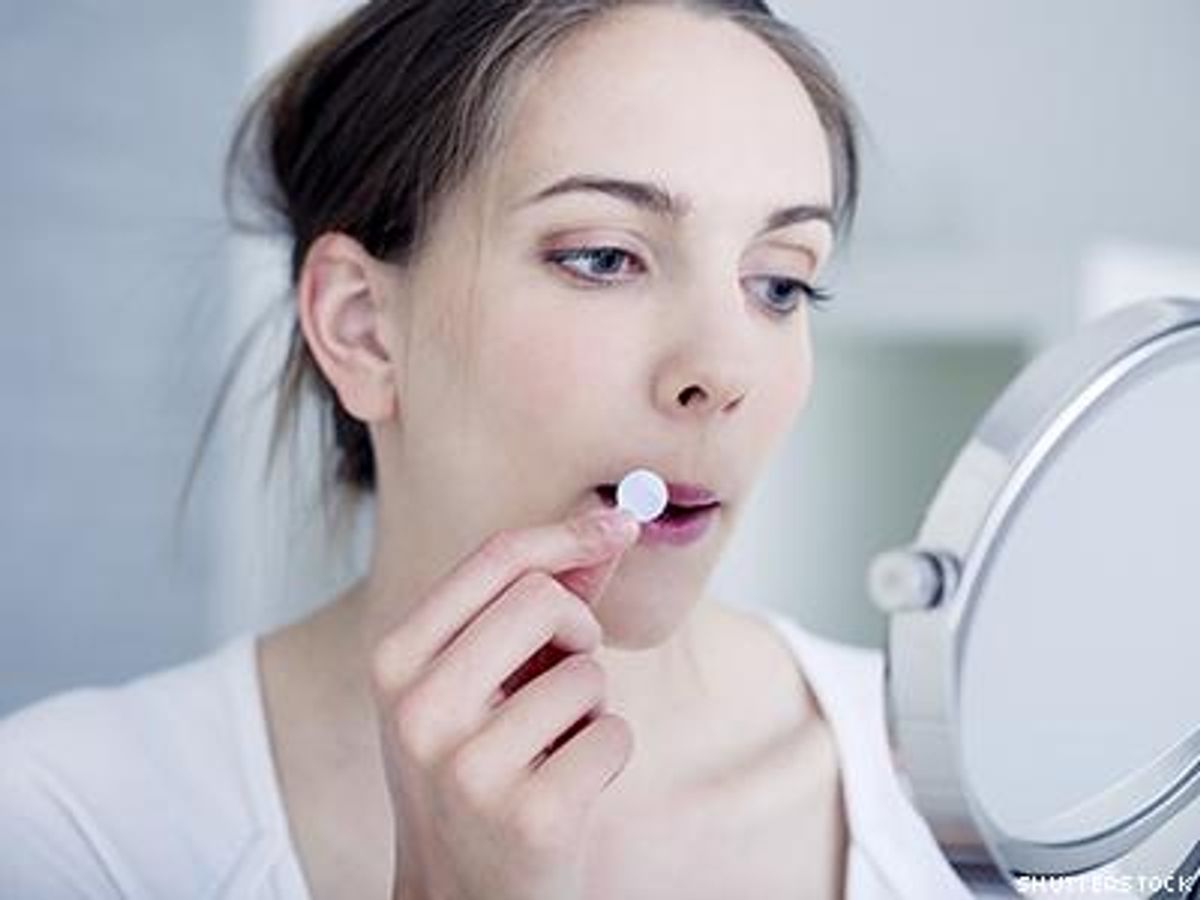One of the definitive sources of world health data and statistics, the World Health Organization (WHO) has more than 7,000 people in 150 countries and at their headquarters in Geneva, according to its website. So when WHO makes mass declarations—like the recent announcement that red and processed meat increases your chances for bowel cancer—they have some hefty credibility.
Last week, WHO released a study in the journal Plos One about what is perhaps the most common sexually-transmitted infection in the world. Long story short, if you’re under 50 years old, it is likely that you have some type of herpes.
According to the study, two-thirds of the world's population under 50 have herpes type 1, also known as oral herpes, which causes raised sores around the mouth—commonly called "cold sores." The number of pepole with oral herpes totals to more than 3.7 billion. Most of them, the organization says, caught it during childhood, witht the virus passed from parent to child via kissing, etc.
Additionally, 417 million people between the ages of 15-49 have HSV-2, or genital herpes, which can create outbreaks of small blisters in the genital area that produce painful sores that scab and heal over within a few weeks. The blisters and sores may be accompanied by flu-like symptoms with fever and swollen lymph nodes.
It is important to remember that both virsuses can be transmitted through sexual contact, even when you are not experiencing an outbreak. And for many people, both types of herpes are asymptomatic. When herpes is asymptomatic, it never produces symptoms but nevertheless lives dormant in the body, able to be spread.
While both viruses can cause discomfort during an outbreak, both are extremely common and relatively harmless, although many healthcare professionals agree that HSV-2 (genital herpes) can increase your risk of catching and spreading HIV.
"We really need to accelerate the development of vaccines against herpes simplex virus, and if a vaccine designed to prevent HSV-2 infection also prevented HSV-1, it would have far reaching benefits," said Sami Gottlieb, a WHO medical officer.
Nathalie Broutet, also a WHO medical officer, said the U.S. National Institutes of Health in partnership with certain companies, iincluding Glaxo Smith Kline Plc, were currently determining whether a therapeutic or preventative vaccine would be more ideal.
Gottlieb said Glaxo Smith Kline has previously stopped a vaccine trial after finding the product was not very effective against HSV-2, although it did seem to work a little bit against HSV-1.
"That was interesting and promising and gave a proof of concept that these vaccines can be developed. There's a lot of work ongoing and we're hopeful that we'll have an HSV vaccine in the future," she said.








































































